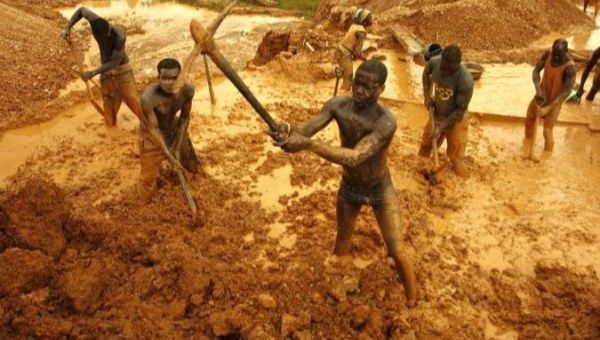
Public Reading
University of Victoria
2022
MIDDY (Mildred) is overwhelmed with the situation at home. As a result of a stroke he had last year, her husband CEPHAS is bed ridden, and he has just received a letter from the Human Resources division of the Nyathi Gold Mine advising him that the family must vacate the company house as he is no longer able to work. Angry at his poor treatment by the company, CEPHAS screams aloud. He remembers how hard he has worked in the mine; the long hours of sweat and labour are demonstrated by the MINE WORKERS through the gumboot music and dance.
The Dark Bridge explores the seizure of land and mines from the whites by the Zimbabwe government in the name of empowering Blacks. In reality, only the few who are affiliated with the ruling party benefit; the majority of Blacks suffer and they are the ones forced to work in illegal mines. In Africa, women are the bread winners in most homes, and this story shows how resilient they can be in the face of adversity.
Political Background
In 1980 the Lancaster House Agreement was signed between black subsistence farmers and white Zimbabweans of European descent (the latter had previously enjoyed superior political and economic status). The intimidation and violence faced by farm owners as the land was taken away from them caused many deaths of former landowners and their workers. Land reform resulted in a more casual approach to running farms, including the use of child labour. This hurt Zimbabwe’s economy, increased poverty levels and eventually led to starvation and famine. By 2013, most White-owned farms had been taken over or classified for future redistribution. In 2020, the Zimbabwean government announced it was compensating the White farmers with 3.5 billion United States dollars. Some of the former White landowners have been leasing land from the new Black owners in order to survive. Due to farmland redistribution, some black Zimbabweans have been able to access large, formerly commercial farmland and have become engaged in artisanal or small scale gold mining.
Condensed from “Land Reform in Zimbabwe”, Wikipedia, and “Artisanal Gold Mining and Farming: Livelihood Linkages and Labour Dynamics after Land Reforms in Zimbabwe” from The Journal of Development Studies, Vol 55, 2019.